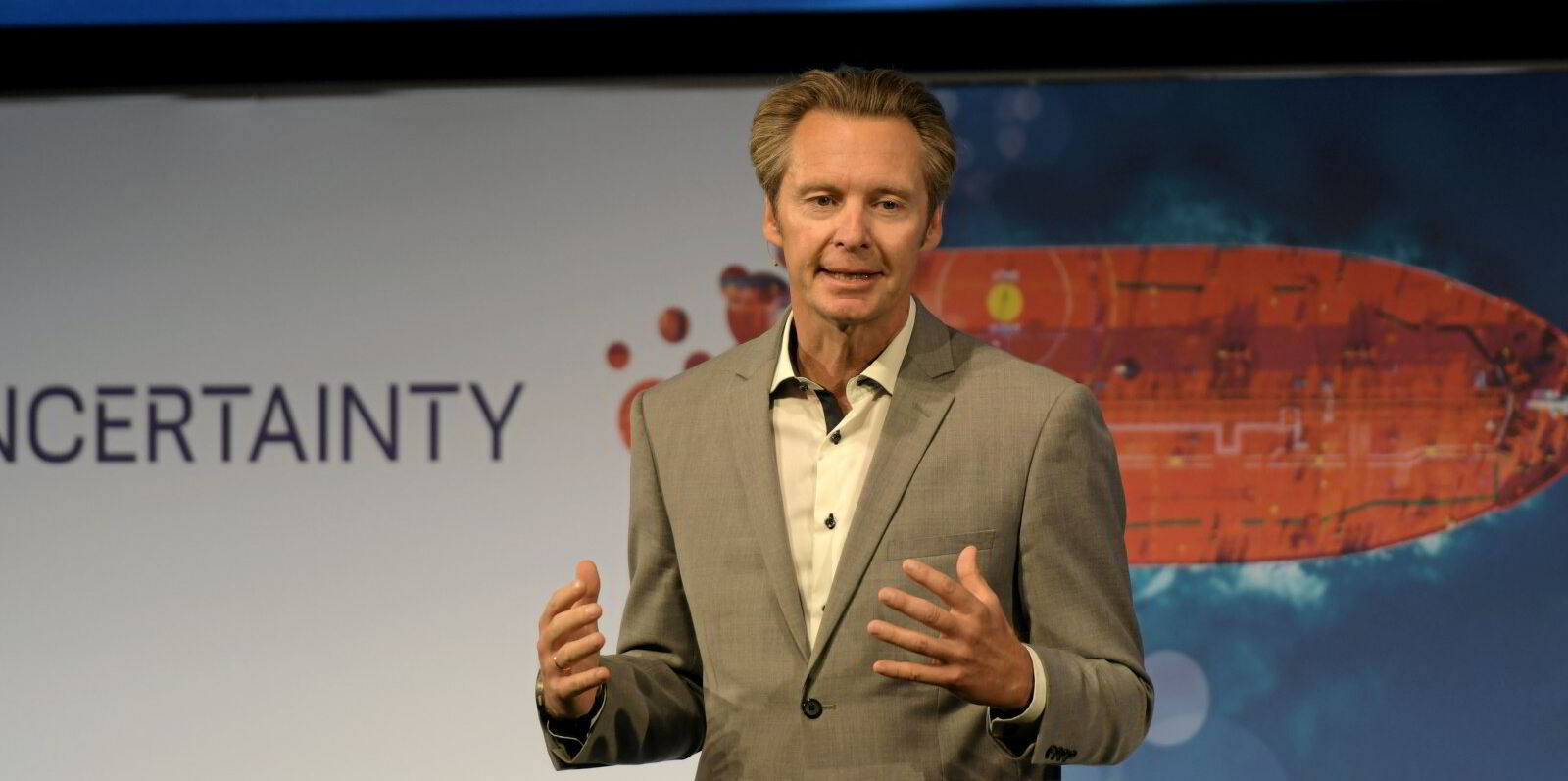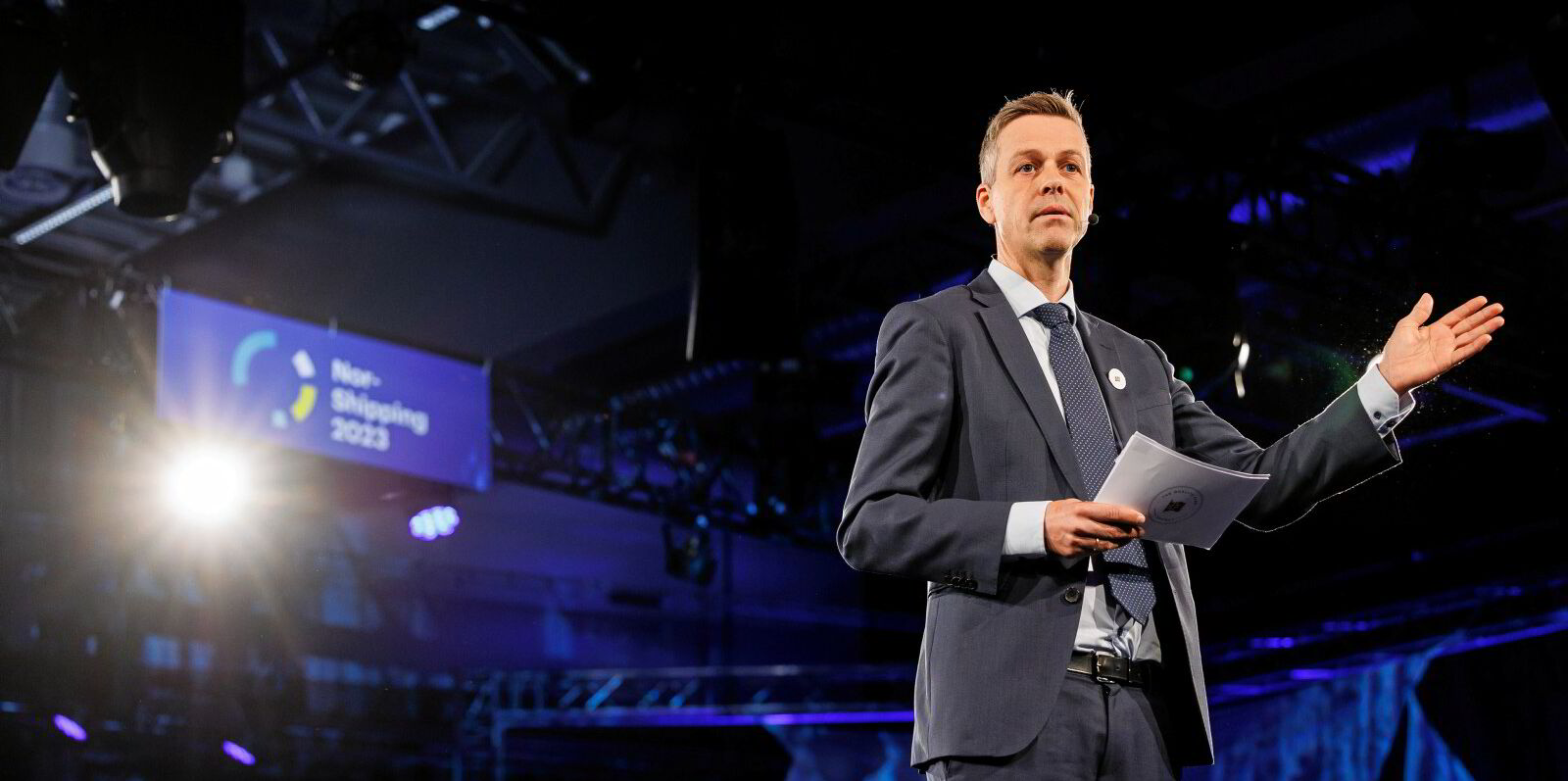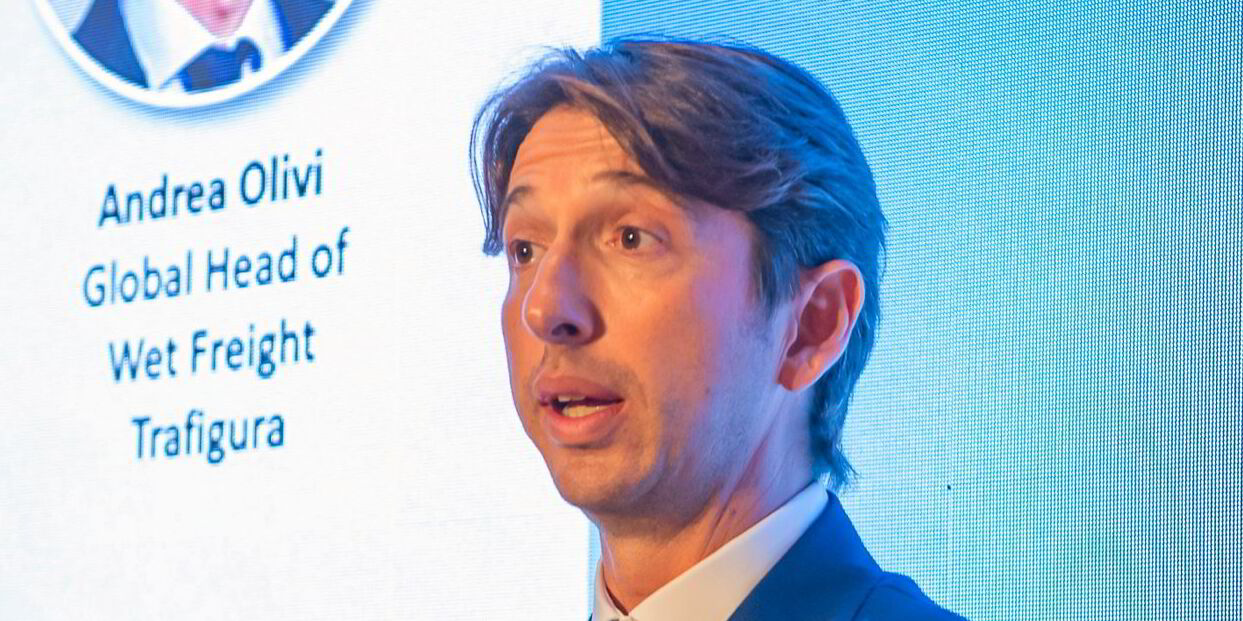Shipowners and operators cannot stay on the terraces, cheering on their favourite technology if the industry is going to hit its decarbonisation targets, DNV maritime head Knut Orbeck-Nilssen said.
He said some in the industry have placed their bets with a specific solution to the increasing emissions-cutting demands, which could put them on a tough track as requirements and conditions change.
“It takes a lot to step away from a certain solution,” Orbeck-Nilssen told TradeWinds following an event introducing DNV’s latest Maritime Forecast to 2050.
“Maybe it was the wrong choice, maybe there are other options.
“I think we will see over the years, those really hardcore fans of one technology are probably going to open up a bit more and think that, ‘Hmm, maybe we need to hedge a bit.’”
So maybe hold off on the parody songs about air lubrication or biofuels: “It’s not like being a football fan in England, where you are dedicated to one team your whole life and that’s the end of the story. Here, you have to be a bit more pragmatic and flexible.”
In the report, DNV recommends the industry focus on energy efficiency initiatives, which it believes can reduce fuel consumption by between 4% and 16% by 2030 against business-as-usual expectations.
Those savings come the same time as the IMO expects the industry to scale back CO2 emissions by 20% and there is significant uncertainty around the availability of alternative fuels.
The classification society said shipping could need every tonne of alternative fuel available in 2030 if it was going to cut emissions by fuel changes alone amid competition from other industries.
If it goes that route, DNV warned, it could miss the 2030 target.
Orbeck-Nilssen said the picture painted by the report, the eighth, was not pessimistic, but realistic.
But he also said shipping was not on the hook for decarbonisation alone.
“It’s not just about shipping, is it?” he said.
“If you think about it, is it really shipping that needs a kick in the butt, or is it authorities and ports and nations that really need to come to a realisation that for shipping to decarbonise, they really need to step up.”
The industry is dependent on fuels and infrastructure for which it is not really its responsibility, he said.
“If politicians want to deliver on the targets agreed by the IMO, they have to help the industry to a better place,” Orbeck-Nilssen said.
“I would rather be kicking somebody else’s ass rather than the shipping industry’s ass.”





